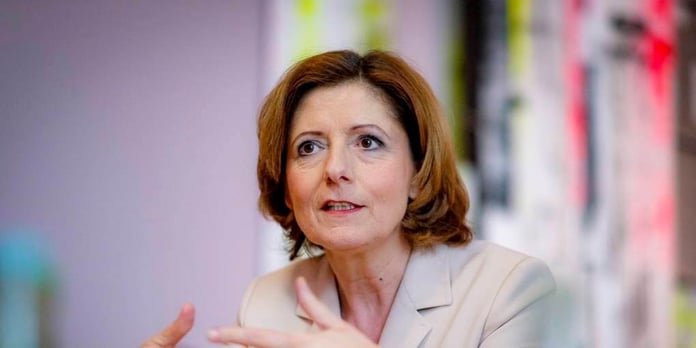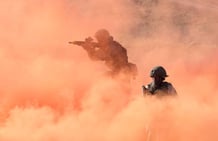
MAINZ – Prime Minister Malu Dreyer (SPD) does not want to impose a mouthguard over Rhineland-Palatinate because of the corona pandemic. “I’m not in favor of a mouthguard requirement,” said Dreyer in Mainz on Tuesday. “This protection is an additional ad hoc measure.” However, it cannot replace the applicable distance and hygiene rules.
In many parts of Germany, calls for mandatory mouth protection are currently being made in public places, for example in shops and public transport. Dreyer said the needs of many people who are more comfortable with masks will be met by talking to textile companies about expanding production. “A simple mask can be used for external protection,” said Dreyer. This applies particularly to activities in which people have to come together in large numbers despite the ban on contact. However, the mask should not create a deceptive feeling of security on the part of the wearer: “But it would be the absolutely wrong signal if people believe that the mouthguard is the solution to all problems.”
Dreyer emphasized that the time had not yet come to take back the drastic restrictions on public life: “At the moment we have no way of relaxing the measures, we have to hold on to them very intensively.”
Nevertheless, the statistics give reason to hope that the number of new infections with Corona in Rhineland-Palatinate can be reduced in the coming weeks. On Tuesday morning, 2,839 infections and 22 deaths were reported across the country. “But you get the impression that something is moving,” said Mainz-based virologist Professor Bodo Pachter. “The numbers seem to be declining somewhat at a very high level.” But this is just a trend that should be treated with caution.
That is why the country wants to significantly increase the number of 5000 corona tests a day in the coming weeks. “At the moment our test capacities are sufficient,” said Pachter. At the moment, testing is mainly carried out on patients and medical staff. If, however, the initial restrictions are relaxed, more tests are needed, which can be carried out with less equipment and personnel, in order to quickly detect and fight new flares of infection.













